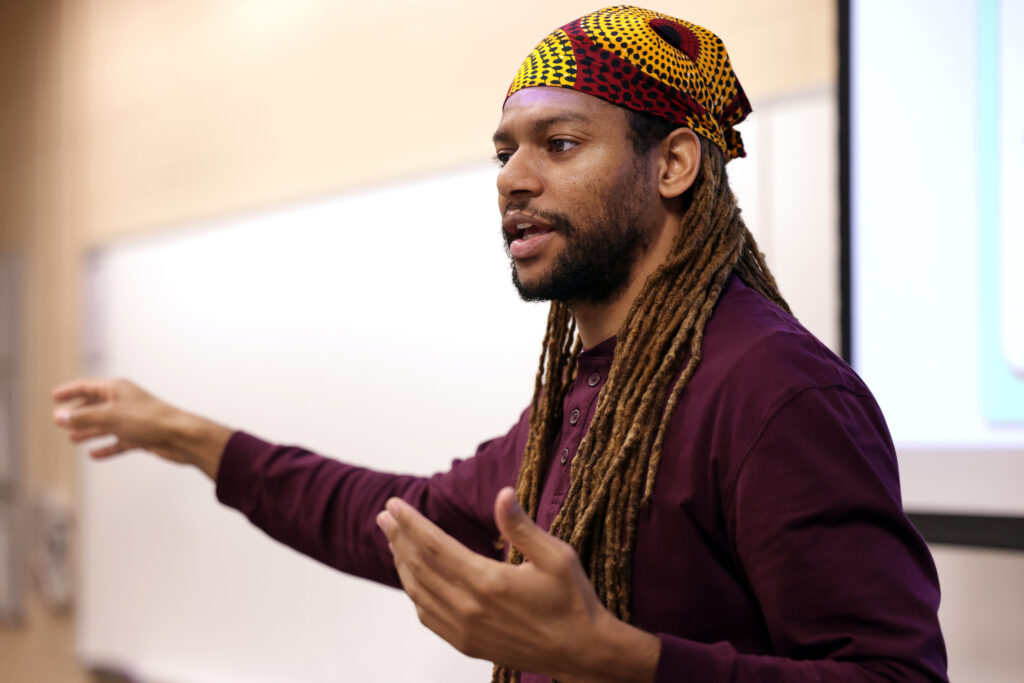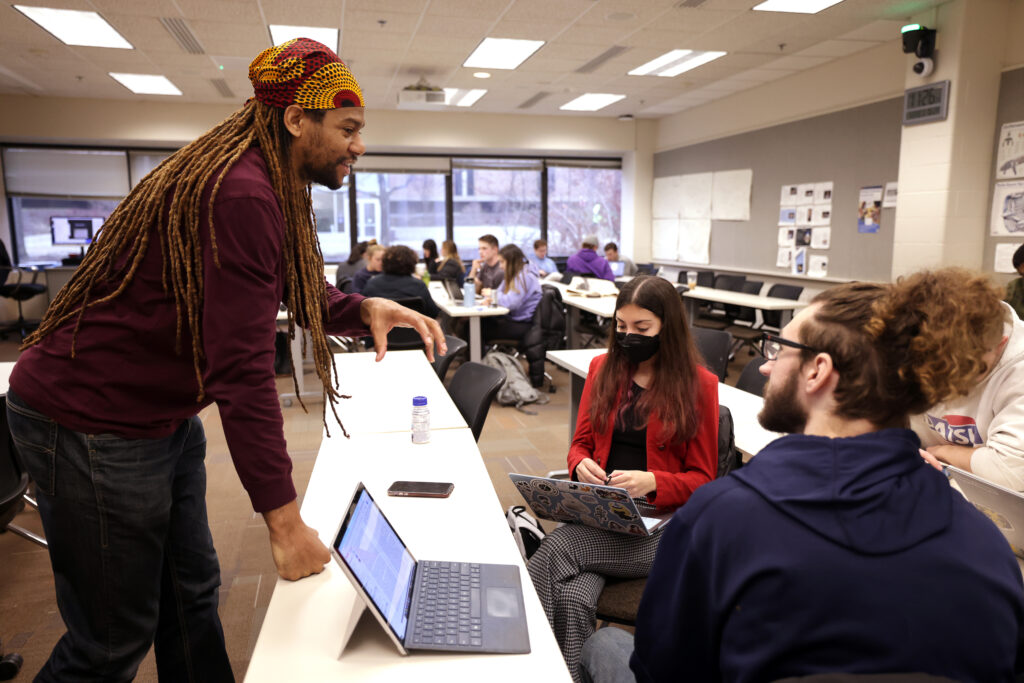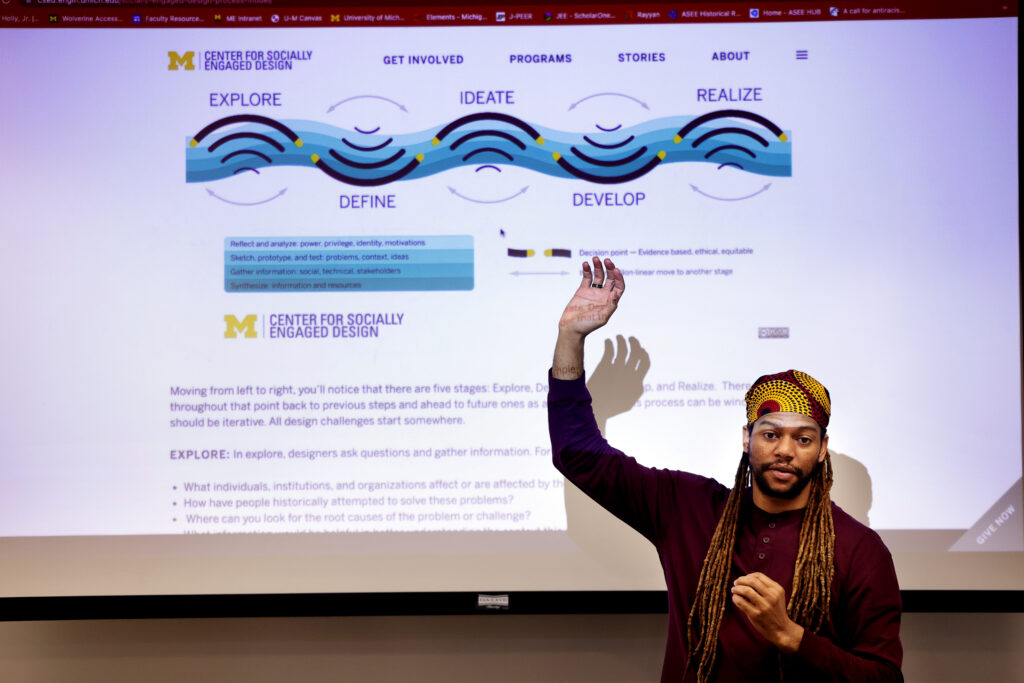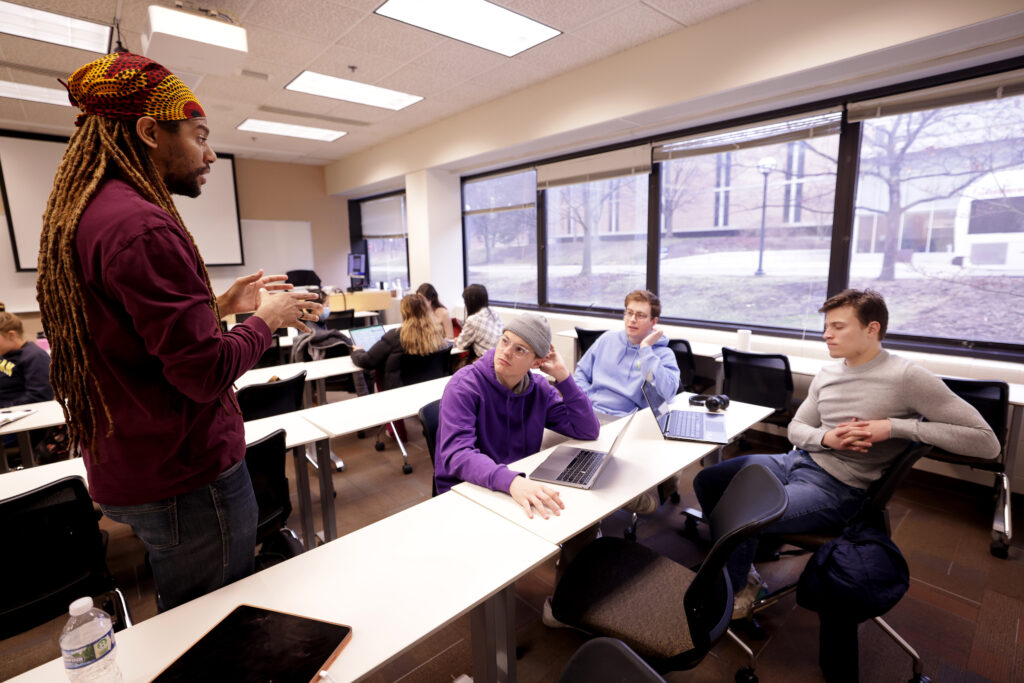
Pushes for greater diversity in engineering programs tend to strive to increase the physical presence of underrepresented communities in student populations. The logic is that, especially for racial minorities, a particular community should constitute the same percentage of a student population as it does of the general population. “However, this narrative preserves Whiteness by passively neglecting the culture of racism in engineering,” said James Holly, Jr., assistant professor of mechanical engineering.
Generations of white hegemony have displaced not only educational opportunities for aspiring Black scholars, but also the influence of their communities’ knowledge in academia. “A discourse centered on who can be physically included without engaging the implications of power in knowledge production neglects the ways Black people are forced to give meaning to their experiences through the lens of Whiteness,” continues Holly, Jr.

Holly, Jr. has been awarded a 2023 NSF CAREER Award for his project, “Learning from Black Intellectualism: Broadening Epistemic Foundations in Engineering Education to Empower Black Students and Faculty,” which aims to change how engineering is taught and thought about.
The explicit goal of engineering is to solve problems, to strive for greater efficiency and for wider capabilities. In engineering education, students have traditionally been taught how to do this only with regard for stakeholders who have been predominantly white, and not for those marginalized communities of color who also feel the effects of emerging technologies. Students have not been taught to understand the “political implications of engineering knowledge,” Holly, Jr. has argued.
Eli Whitney, for example, widely regarded as the Father of American Technology, is introduced in classrooms across the United States as the inventor of the cotton gin, an innovator who revolutionized the American South’s agrarian economy and kickstarted a wider industrial revolution. “He saw economic opportunity because people were looking for a way to increase the efficiency of harvesting cotton,” said Holly, Jr. “He mechanized the process he saw enslaved people doing, and so he’s framed as an innovator, an inventor. But the reality is, what he did gave new life to chattel slavery. It’s a technological advancement, but it’s for something that’s very exploitative.”
The central component of Holly, Jr.’s approach for creating change is prioritizing and promoting Black Intellectualism, which Holly, Jr. explains is “the thought that comes from Black people about Black life,” in the classroom. “Ways that Black people have talked about social realities in the United States,” said Holly, Jr. “how can we use that to inform and reshape engineering and the use of engineering?”

To address that question, Holly, Jr. will convene a teaching circle of higher education faculty from institutions across the United States. Together, they will develop a Renaissance Schema, a roadmap for revising existing courses to center informed understandings of Black social realities. After meeting monthly over the first two years, each member of the teaching circle will choose one of their own courses to revise, employing this schema. The group will then re-convene for updates and to develop a teaching evaluation tool for assessing the degree to which the revised courses have succeeded in empowering Black students and faculty.
The ultimate goal of the project is to see student performance and engagement, and the engagement of faculty, improve. “Now that we have this schema, how does that influence assessments and the lectures and presentations faculty do in their courses? In what ways can this schema influence actual teaching practices?” asks Holly, Jr.
Though this teaching evaluation tool will be developed by faculty, it is meant to help students to better assess their teachers and their experiences in the classroom. “Right now, student evaluation of teaching, research has shown, is racially-biased and gender-biased,” said Holly, Jr. “Nevertheless, it’s used for promotion, to determine merit pay.” By addressing the bias in the current system of assessments, the project aims to provide Black faculty with the intellectual freedom to center their knowledge, and the knowledge of other Black scholars and Black students, in their classrooms.

In the later years of the project, members of Holly, Jr.’s teaching circle will begin to disseminate their Renaissance Schema to other faculty at the University of Michigan and at professional conferences, like those held by the American Society of Engineering Education. Here, Holly, Jr. hopes to see other engineering faculty adopting the Renaissance Schema and redesigning their courses to achieve a deeper and more impactful vision of inclusivity.
When asked how he felt about receiving funding for this project, Holly, Jr. said, “it’s dope to have something I’ve been thinking about for a few years be supported by an organization like the NSF. I’m grateful, but this isn’t the work, this is just the financial resources to do the work. So I am eager to get it started and hopefully the Michigan Engineering community will implement some of the learnings that come from this intellectual endeavor.”
—-
“The Faculty Early Career Development (CAREER) Program is a Foundation-wide activity that offers the National Science Foundation’s most prestigious awards in support of early-career faculty who have the potential to serve as academic role models in research and education and to lead advances in the mission of their department or organization.”
